by Tarini Manchanda
Farmers Protest “Black Laws”
A highway in Delhi of more than 60 kms has not only become the site of one of India’s largest protests, but it is also the home to many farmers who find their way of life threatened by the corporate sector. It is a home complete with posters, welcome mats, drying clothes, and cooking food. Why? Because the farmers are here to stay until the recent farm laws, which they feel are unjust, are repealed.
On 26th November 2020, farmers from across India arrived in Delhi to express their concerns. With them, they brought doctors, health centres, and provision stores. They are protesting against laws that have been labelled the “Kala Kanoon” (Black Laws), a term implying evil intentions that threaten lakhs (100,000s) of farmers.
The government had allotted a protest site for the farmers in Burari, Delhi but it remains an empty lot; an empty field just like the stalemate in conversations between the government and farmers. Instead, the farmers are expressing their protest at a site close by on the highway that outlines the city of Delhi.
The Scene at the Singhu Border
Tractor after tractor, and trolley after trolley have been remodeled into temporary shelters. They accommodate farmers who hail from cities from across Punjab, Haryana, and Uttar Pradesh. Trolleys are covered in blankets. Washing machines line the highway. Shoe polish, shoes, and dustbins are attached to the trolley doors. Firewood, food, and every amenity imaginable is at the site. Protesters consult each other on which langar is the best one.
There are stages hosting farmer leaders, vocalists, artists, activists, and other supporters. Small fires bring a glimmer to the January smog in Delhi. Flags dot the skies near every stage, people walk about performing duties for the day or chanting slogans. Horses and their Sikh riders gallop through these surreal streets. This takeover of space resembles a scene from a fictional world.
The atmosphere isn’t always serene, however; police is dressed in riot gear wander around the barricades; threats of violence against protesters occasionally arise, and many farmers have died by suicide.
Women at the Forefront of Farming
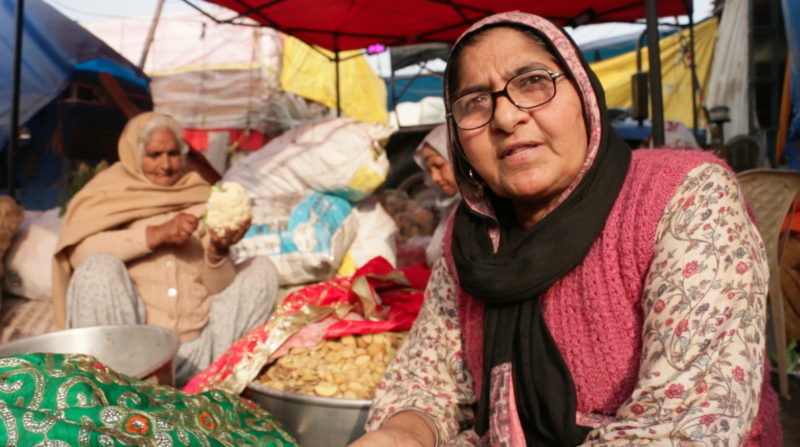
In a small enclosure next to a langar stall, sits Gursaranjit Kaur. She is chopping vegetables for the next meal. Hailing from Patiala, she is ready to speak about the issues at hand. Her words reveal complexities in the agricultural system. Agriculture, through her eyes, appears to be a way of life as it provides income and dignity.
Sitting among the women making langar, one becomes aware that women have been at the forefront of farming for centuries. They are not only the hands behind each plate of rice and dal, a staple food at the protest, but they are also the minds behind the movement, putting up a reasonable fight for their lands.
Some women have been preparing to drive tractors in the grand rally planned for India’s Republic Day. “On the 26th of January, we will go to the tractor rally, and the women will remain in front,” says Svaran Kaur from Amritsar. She is joined by Mahinder Kaur and several middle-aged women. Even though each person is from a different city or town, they echo similar concerns and ideas.
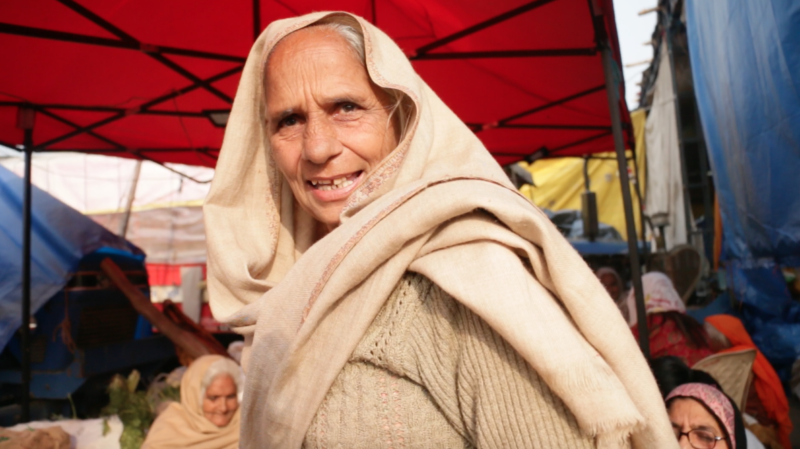
Feminine Farming Knowledge
The farmers are fighting for their “jameen and their jameer (land and consciousness),” exclaims Gursaranjit. Their jameer (conscience) has become witness to the people percolating into the wide and barricaded streets.
Gursaranjit, sitting atop a burlap bag of potatoes, is clear that although some of her children have left the village in search of higher incomes, one member of the family must remain with the family land. She has a clear response to the privatisation of agriculture, “Why do they want to take over our lands? We have been farming ever since we were born. Who are they to interfere with our methods? The land is our mother.”
Farming is a relationship with the land, explains Gursaranjit, “We grow potatoes, corn, rice, and vegetables for our own consumption. We don’t eat food in packets. Our food is organic. Can the corporates provide us such food? Can they do farming?” As she chops cauliflower, she was keen to lend a retort to the latest Tweet by Kangana Ranaut, a Bollywood actress who has taken to Twitter to malign the protesting farmers and their concerns.
Gursaranjit says that she is not looking to take up alternative employment. She would prefer to remain a land owner, beholden only to the land and its needs. As she speaks, others chime in to support the movement’s concerns.
While the women gathered at the Singhu Border feed onlookers, protesters, and curious participants, they assert that irrespective of whether they are seen as farmers or merely as farmer’s wives, they hold important farming knowledge. They know what to grow, which season to grow it in, how to sow seeds, and what to do at every step in the farming process. “We are women, but we are with the men. We understand the farming and take part in it,” is the message they express.
Gursaranjit proudly shares that, “The men who farm can spend hours on their tractors in the cold, they are capable of storming Delhi, and they will take over the city.” Her tone is approving, because she believes that corporates have no right to impose their way of life on farmers. “The police in Delhi has thrown tear gas at us and they have built mud walls, but that hasn’t stopped us.” Gursaranjit is adamant that the farmers will not move until they are able to protect themselves from the kala kanoon. Gursaranjit and Svaran articulate their role as if it is in support of the men, but any observer at the protest can tell tell that their work forms the backbone of this movement against capitalist farming.
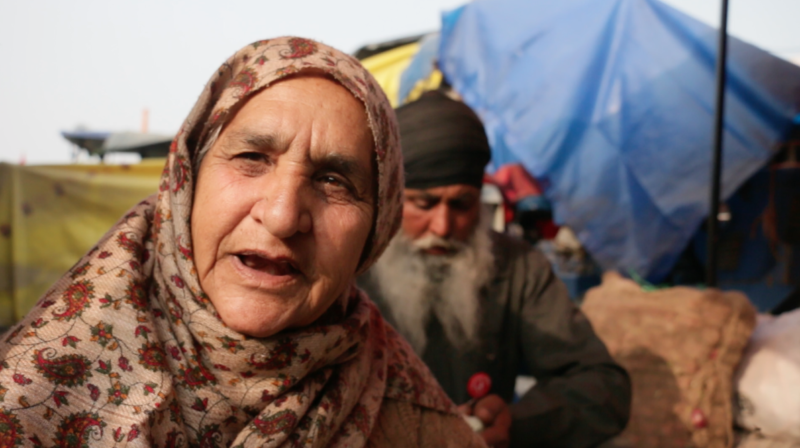
The attachment to one’s land, agriculture, and conscience is connected to the importance of farming. It’s almost as if Gursaranjit and the women around her have merged into a way of life that recognizes the environment and people around them as intrinsic to their well-being.
The Different Roles of Women
An interesting aspect Gursaranjit reveals is that her role in the movement is also to intervene when there is a halla a threat of disturbance) at the protest site.
As the farmers, caretakers, cooks, storytellers, and peacekeepers of the protest, women are the conscience keepers. They may be invisible in the media, or social imagination of the profession of farming, but their conscience is ever present. Their consciousness cannot accept the laws that will break the system of farming in their region.
Svaran gestures to indicate that her role is to make hot rotis and feed anyone who joins in the protest. It is evident, however, that feeding many is not only a domestic role, but the reason these women are able to protest at all. “There will be no food without farmers,” they say.
Despite the robust discussion about women’s roles and lived realities, the space for women is contained and confined. Gender roles are segregated even within the protest site. Although the gender divide is visible, individual women take to the stage, and prepare to break with the normative female identity. Equality does not erase difference, but the ideas that a handful of women are strong, is revealing as any other.
Farming is their Identity
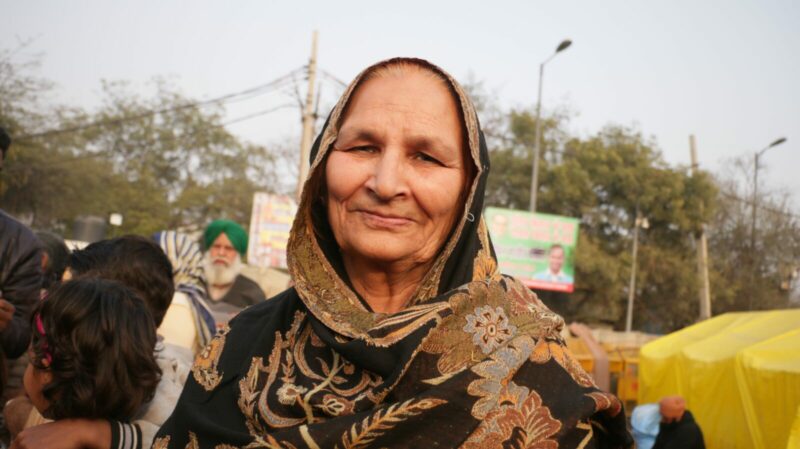
To end their story, Svaran and Gursaranjit recite a short couplet in Punjabi, and the women sitting around them chime in. It speaks of a farmer’s independence, and explains that the value of a farmer is expressed only in the quality of her field. The poem ends with the assertion that a farmer can never abandon their farming, because it is a reflection of their entire being.
Gursaranjit and Svaran are not at the centre of the stage, but they remain in the conscience of the movement, at the heart of it all.
About the Author

Tarini Manchanda is a filmmaker who focuses on environmental justice stories from across India. The focus of her work is the vulnerability of various populations who are affected by development and globalization. She is based in Delhi. Some of her work can be found at gameonproductions.tumblr.com.

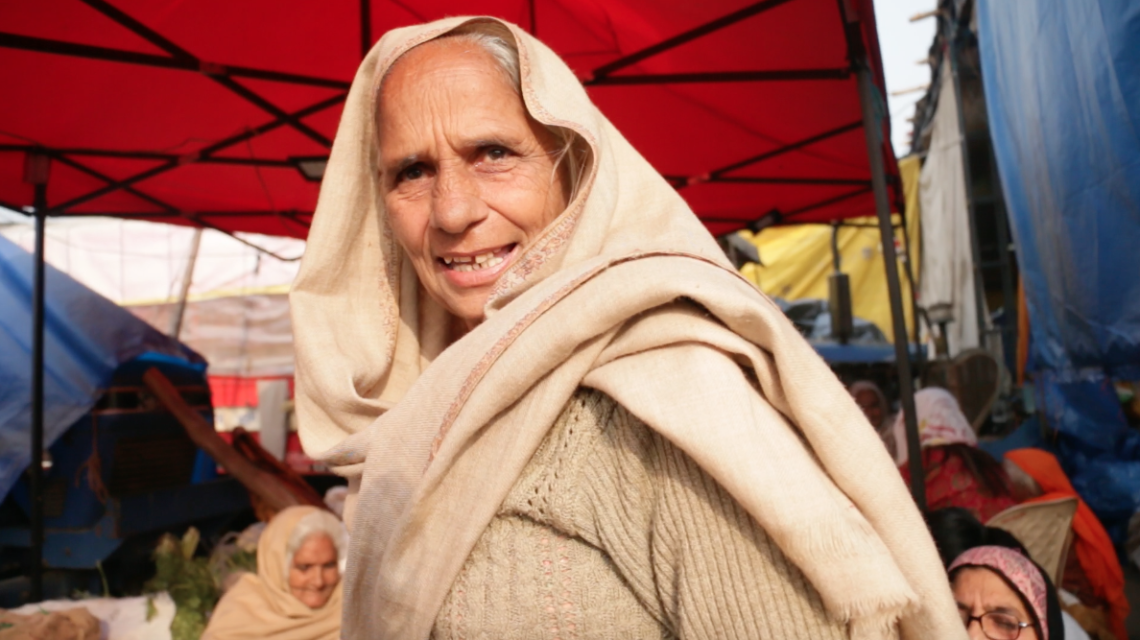
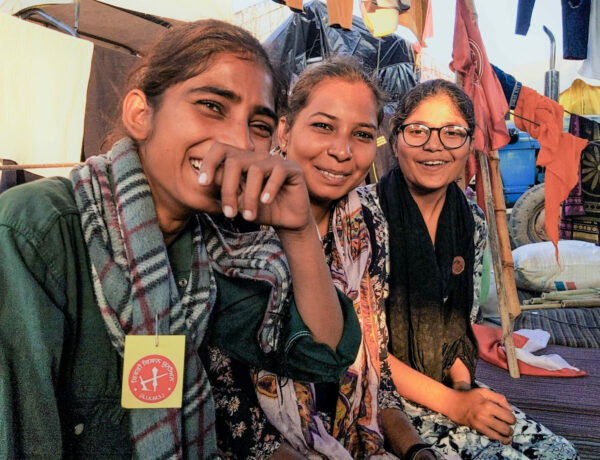
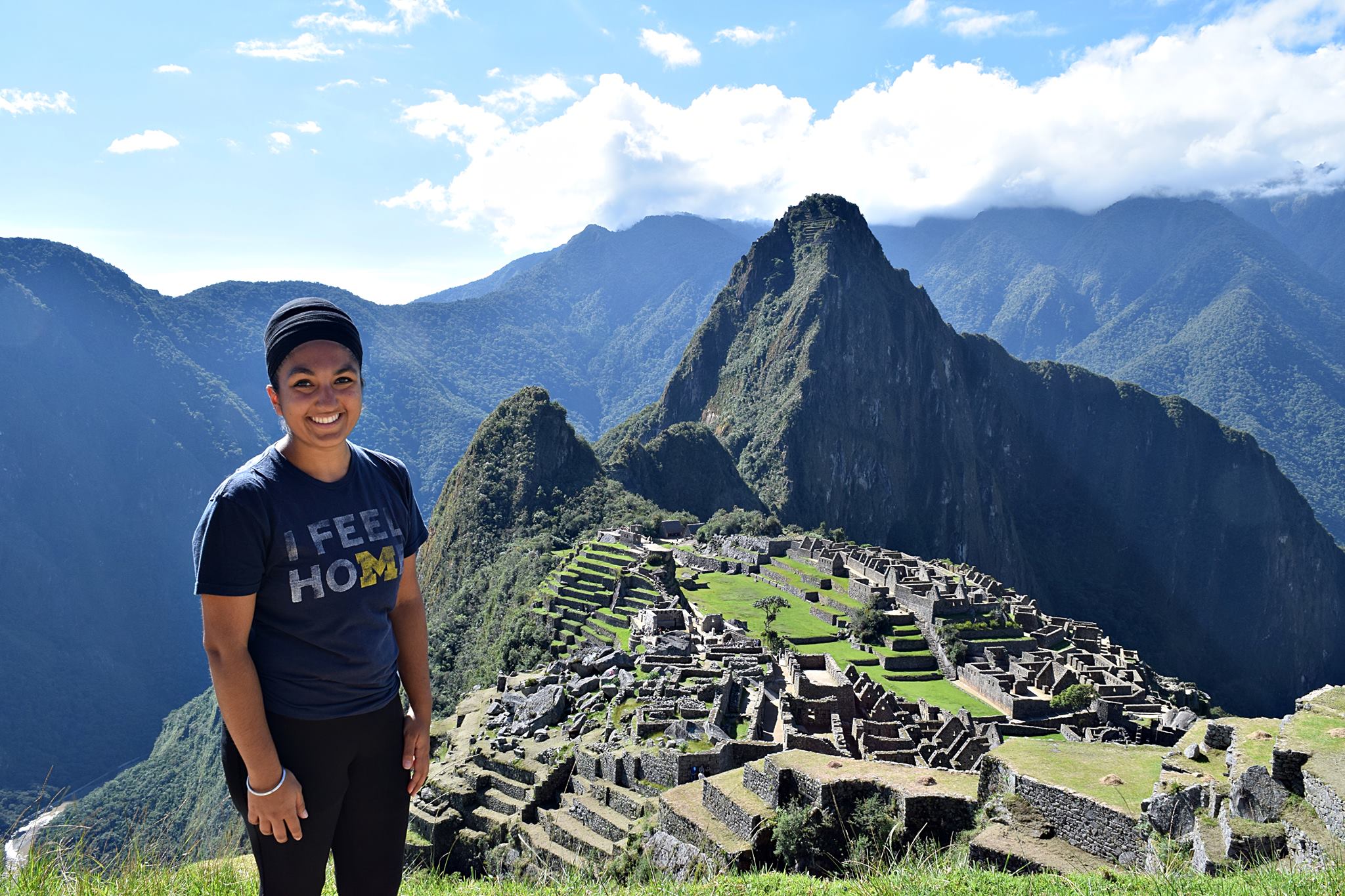

No Comments